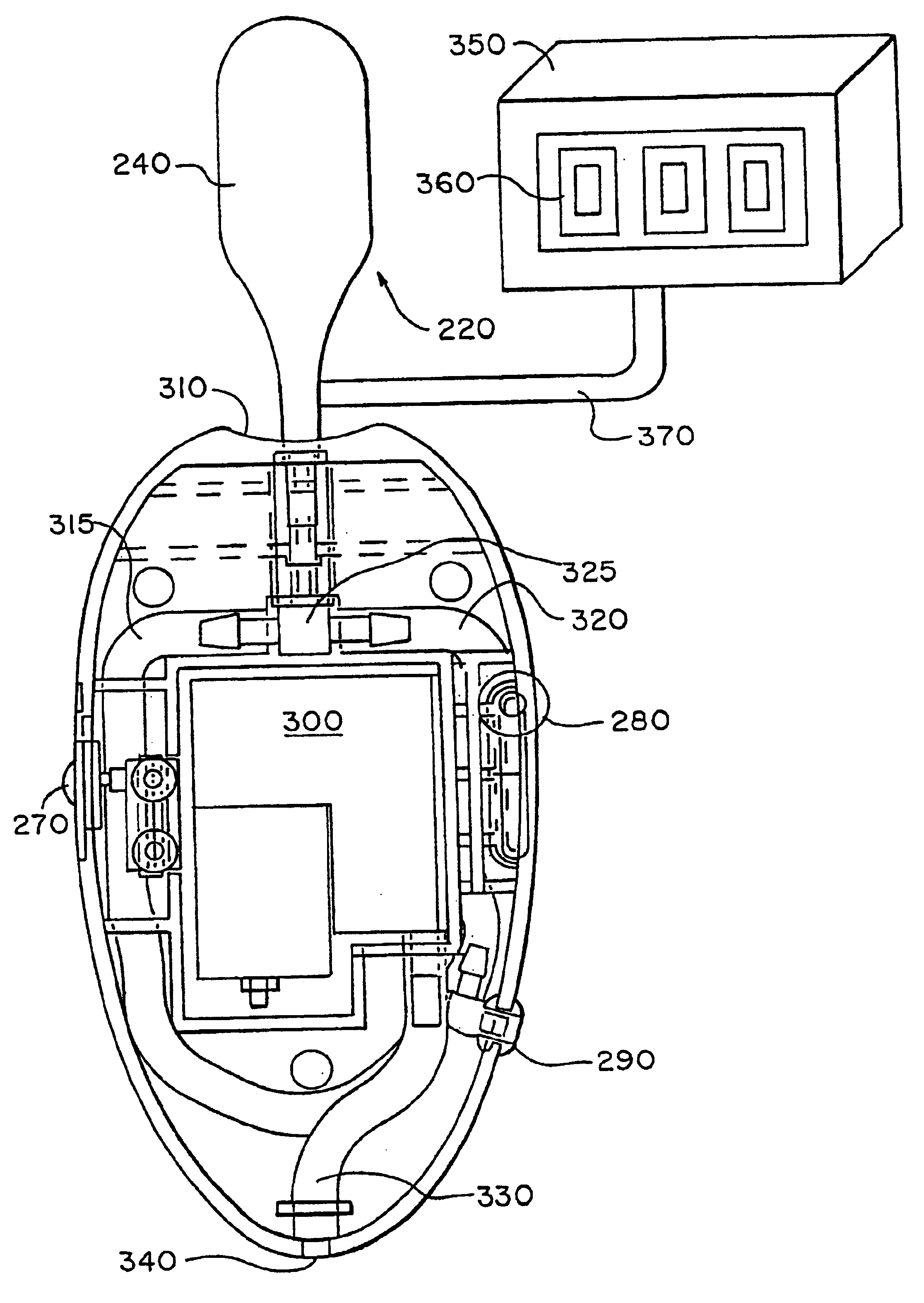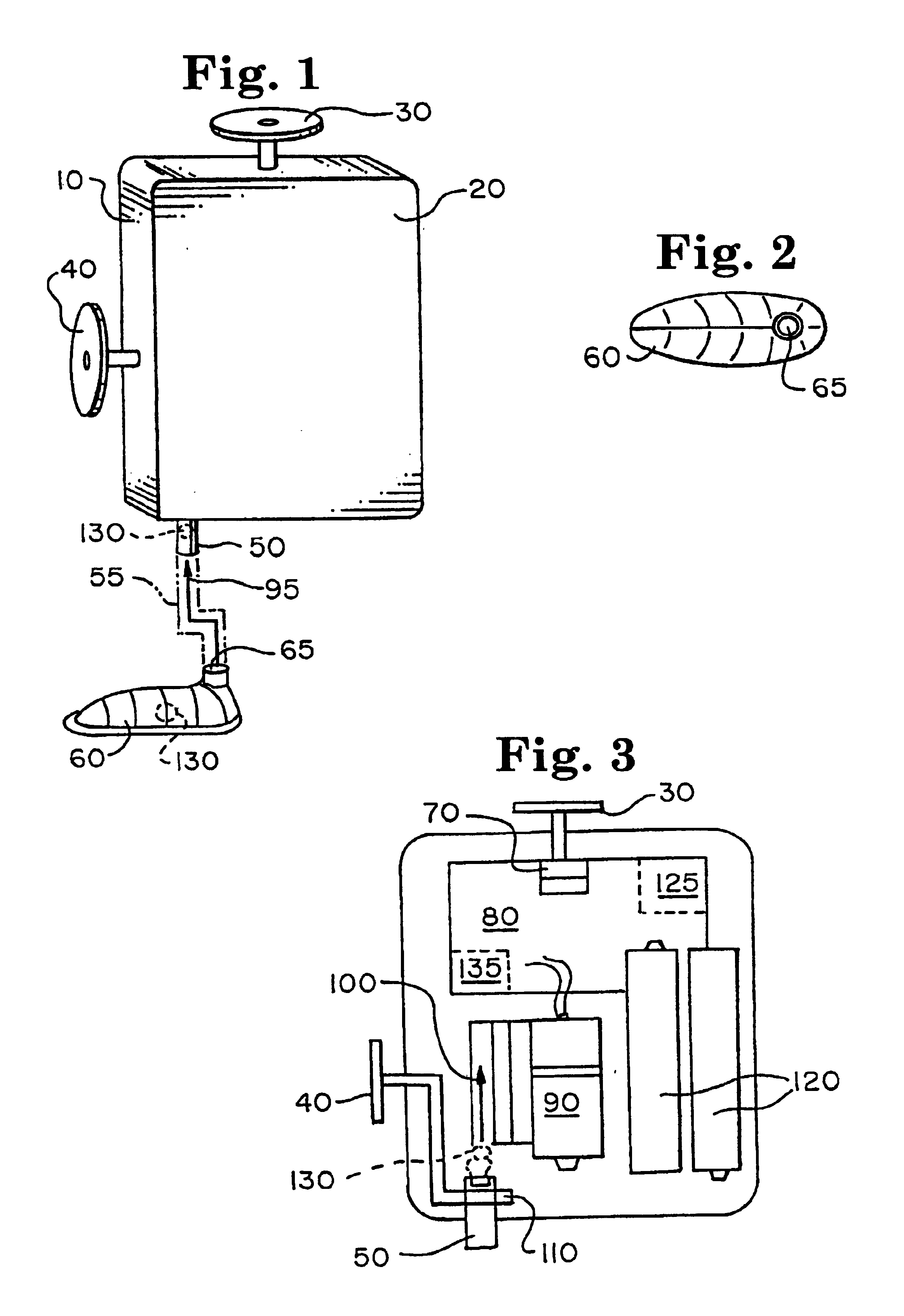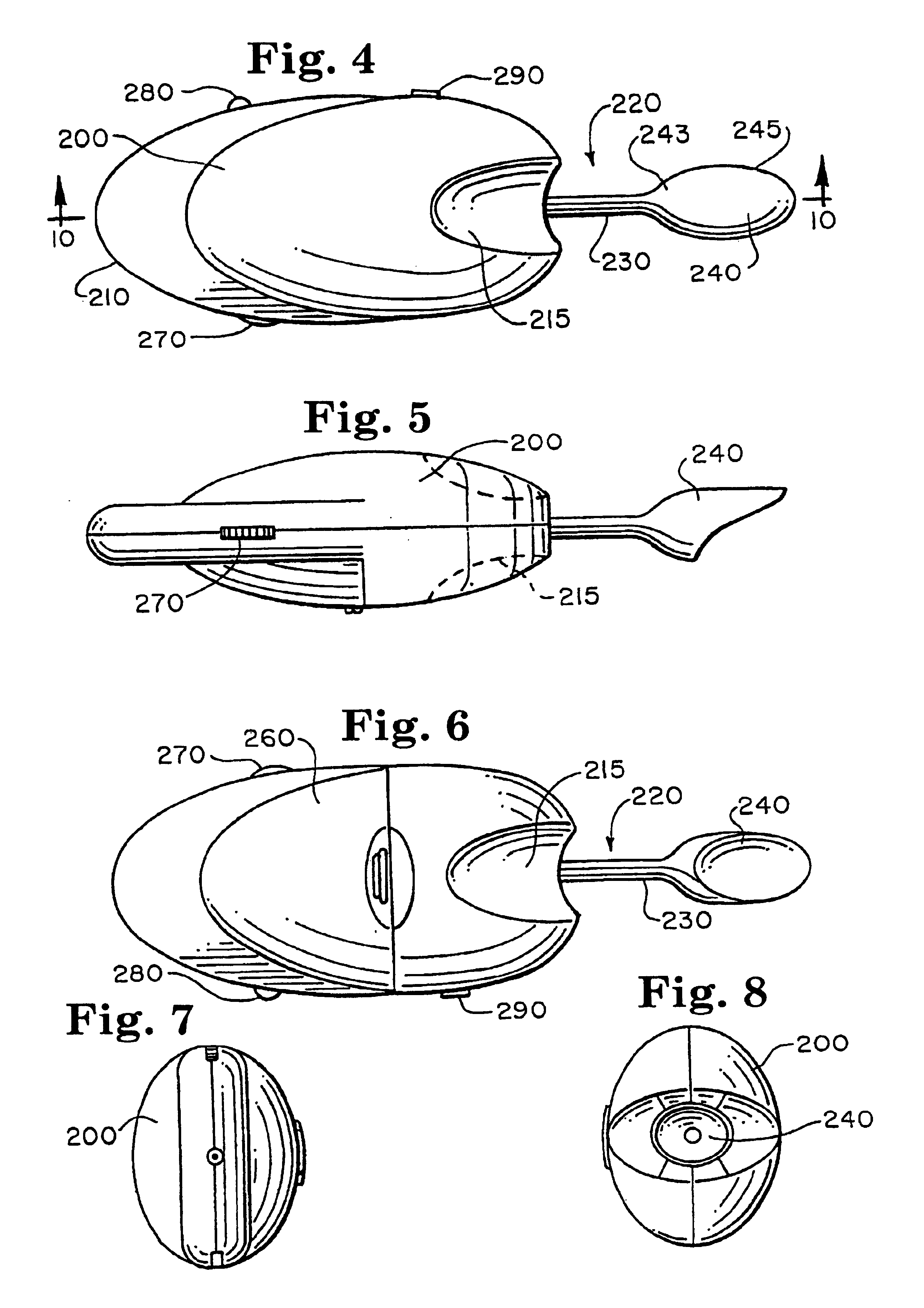Devices and methods for treatment of incontinence
a technology for incontinence and devices, applied in physical therapy, medical science, chiropractic devices, etc., can solve the problems of urinary incontinence, disability and dependency, monetary costs of managing urinary incontinence, and the psychological costs associated with the problem, so as to improve the effect of short-term pleasurable effect and long-term use, and promote clitoris engorgemen
- Summary
- Abstract
- Description
- Claims
- Application Information
AI Technical Summary
Benefits of technology
Problems solved by technology
Method used
Image
Examples
example
[0136]A study of female patients at Boston University, Boston, Mass. and Metropolitan Urological Specialists, St. Paul, Minn. was conducted following approval from the Institutional Review Boards of each center and informed patient consent. The goal of this study was to evaluate the safety and effectiveness of a device according to an embodiment of the invention for enhancing subjective parameters of sexual arousal in women with and without FSAD. These sexual arousal parameters included genital sensation, vaginal lubrication, ability to reach orgasm, and sexual satisfaction. Additionally, patients with complaints of urge incontinence or frequency were evaluated for changes in their bladder control.
[0137]A complete medical history and physical examination, including a pelvic examination, was performed on each patient. All menopausal patients had serum estradiol and FSH levels measured and were considered menopausal if they had a lack of spontaneous menstruation for at least 12 months...
PUM
 Login to View More
Login to View More Abstract
Description
Claims
Application Information
 Login to View More
Login to View More - R&D
- Intellectual Property
- Life Sciences
- Materials
- Tech Scout
- Unparalleled Data Quality
- Higher Quality Content
- 60% Fewer Hallucinations
Browse by: Latest US Patents, China's latest patents, Technical Efficacy Thesaurus, Application Domain, Technology Topic, Popular Technical Reports.
© 2025 PatSnap. All rights reserved.Legal|Privacy policy|Modern Slavery Act Transparency Statement|Sitemap|About US| Contact US: help@patsnap.com



